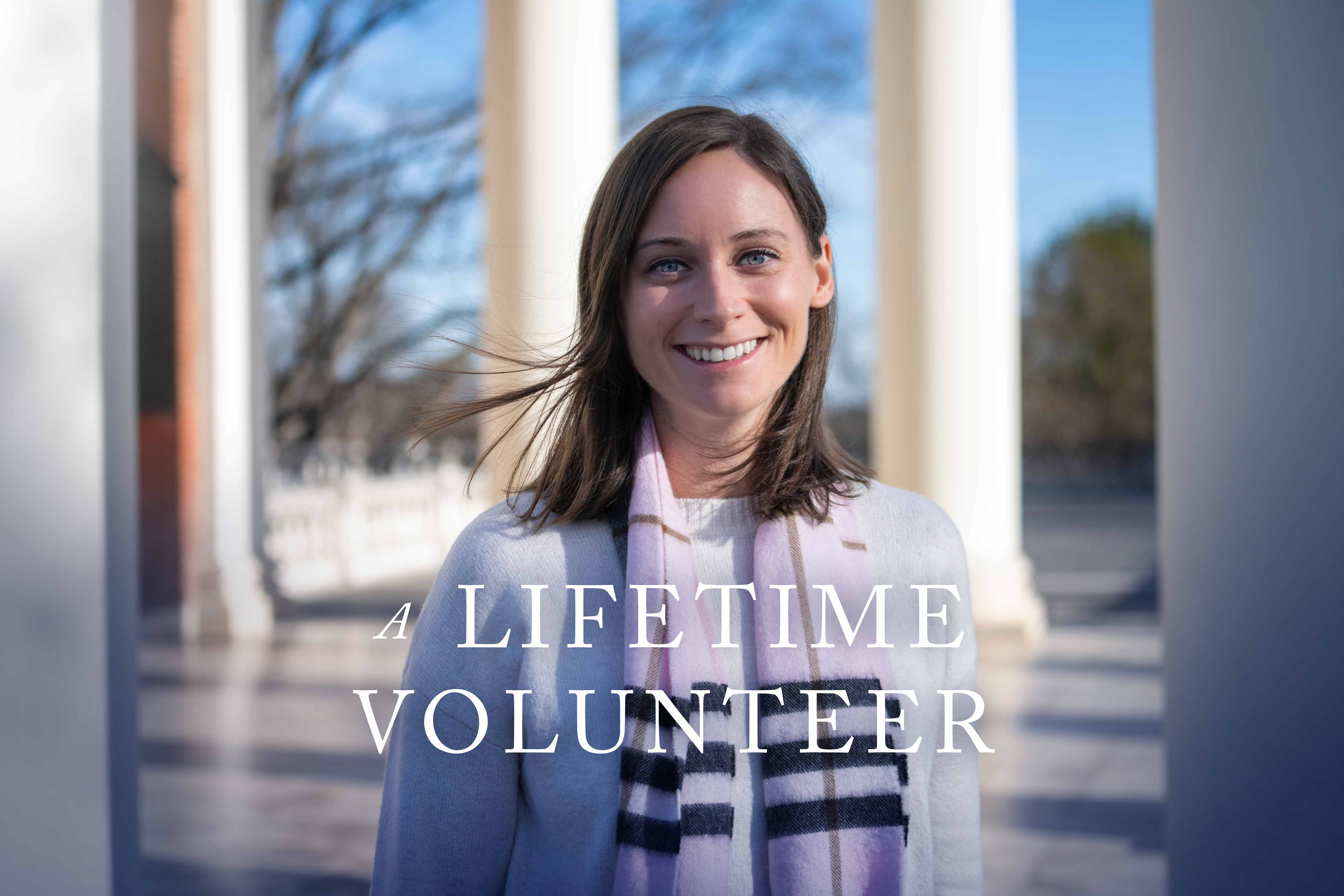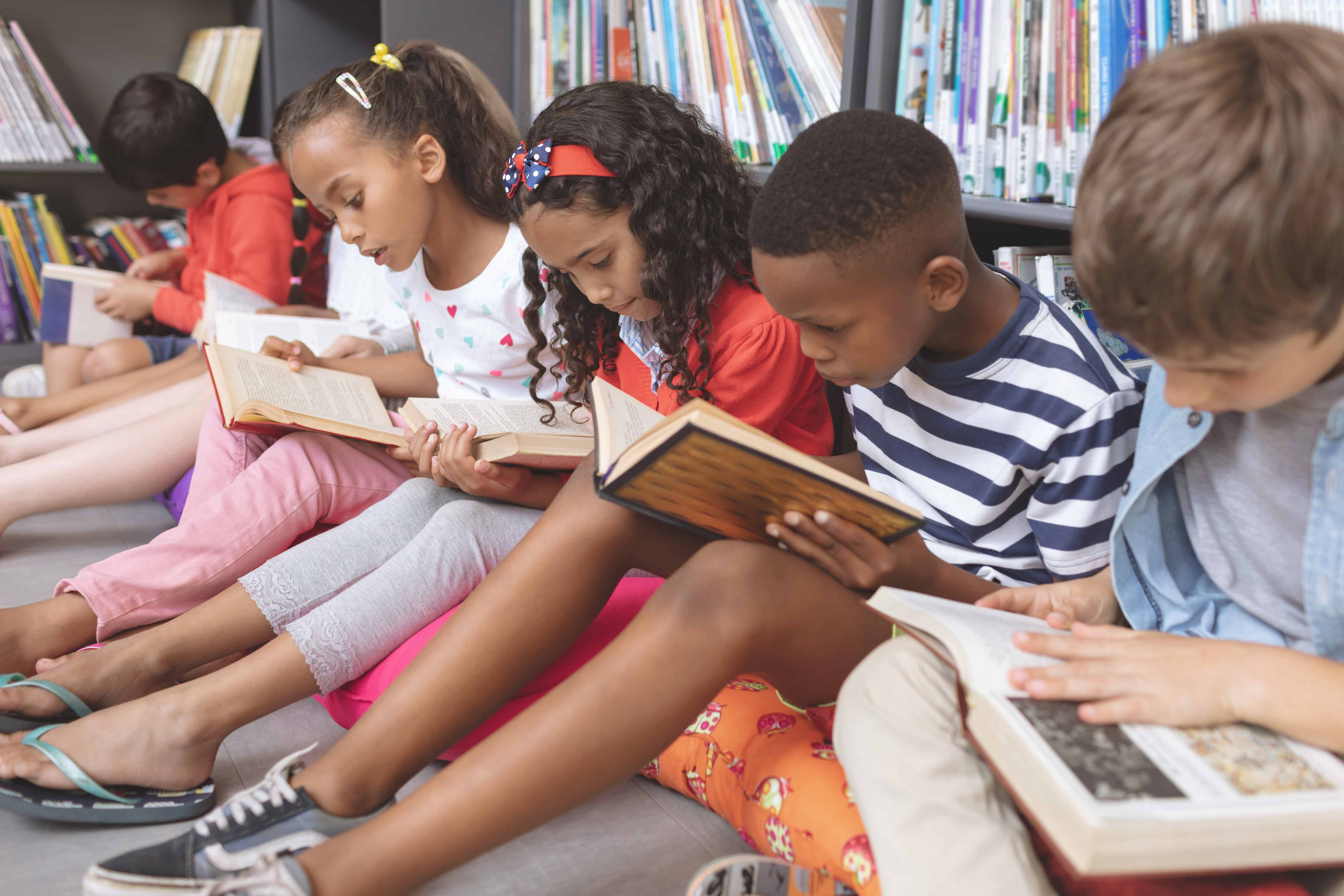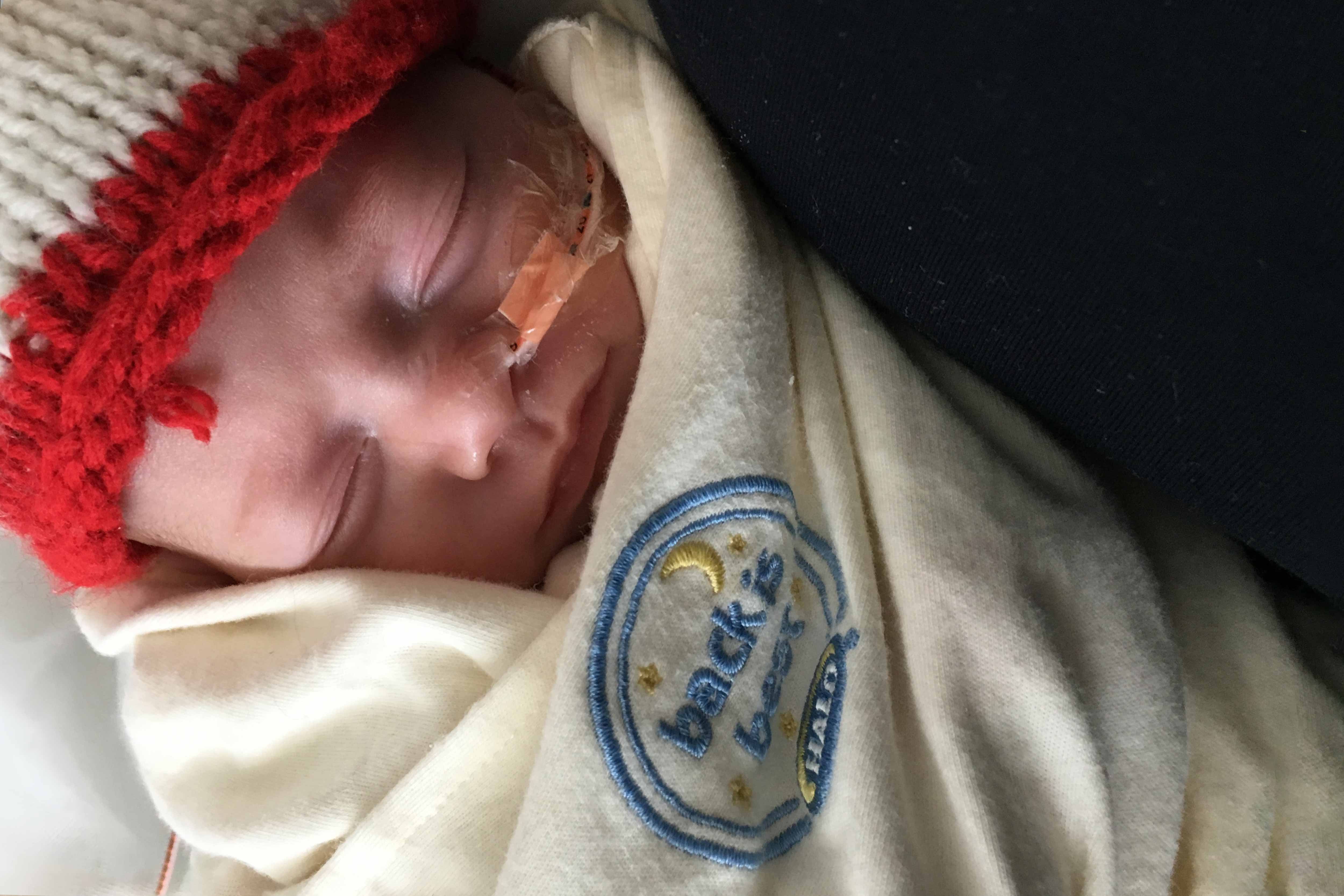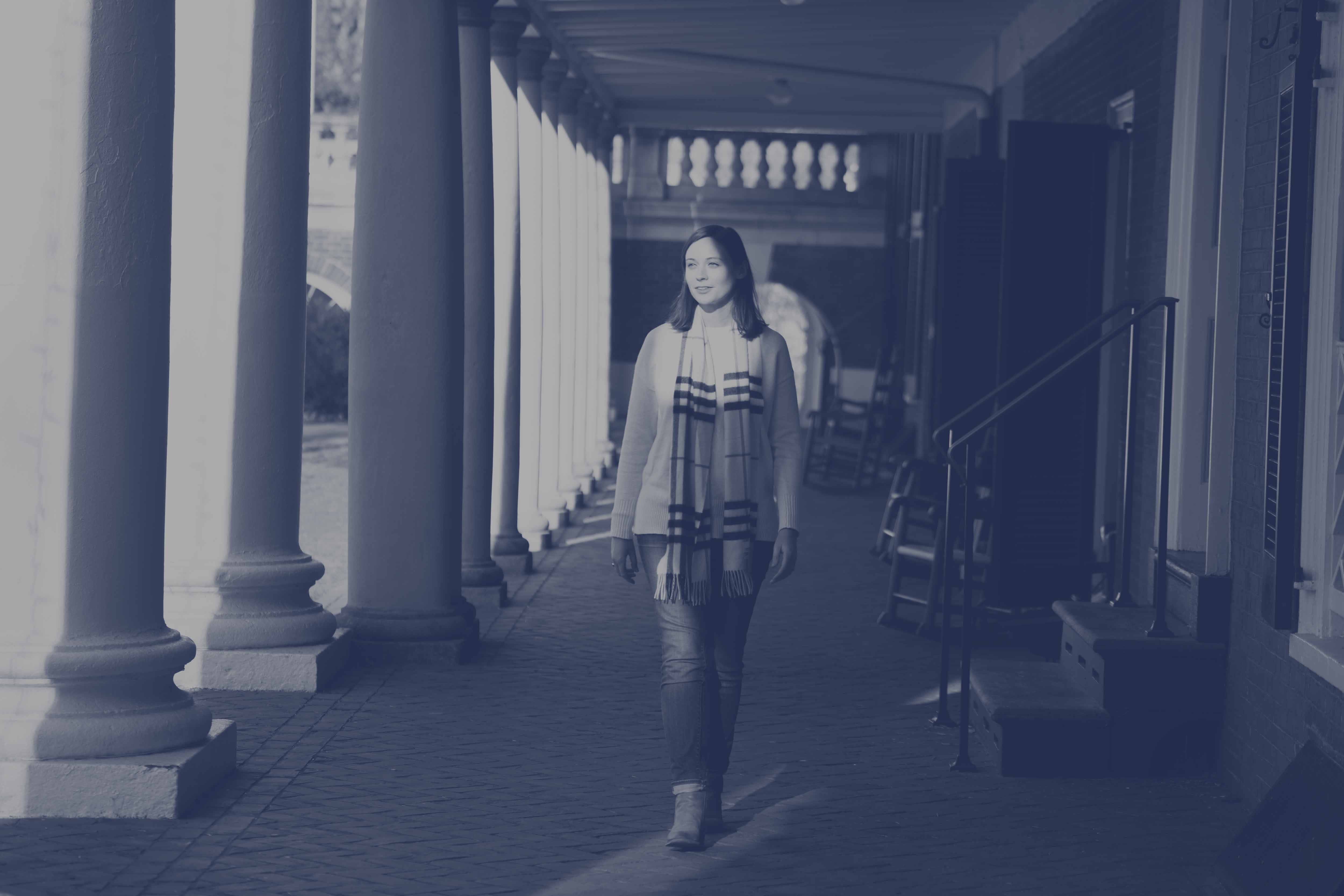A Lifetime Volunteer

Big accomplishments can have humble origins—like a child’s lemonade stand. When she was six years old, Lauren Russell (Col ’16, Batten ’17) raised $20 for Children’s Hospital of the King’s Daughters in Norfolk by selling glasses of lemonade to passers-by in her hometown of Newport News, Virginia—a modest start to what’s become an impressive track record in volunteering and philanthropy.
Years later, Russell donated countless hours to create an early literacy program at Poquoson Primary School and then as a volunteer for Madison House during her time on Grounds. Most recently, she helped to raise more than $50,000 for the Frank Batten School of Leadership and Public Policy in her role as a member of the Executive Committee of the Batten School’s Alumni Advisory Board.
“I actually wrote one of my UVA supplemental application essays about how the world of volunteering shaped me into an engaged community member,” she recalled. “It played a consistent role in my life.” An unlucky passenger in two car accidents during her senior year of high school, Russell experienced two traumatic brain injuries within a matter of weeks. As a result of recommendations from a brain injury specialist, she spent the majority of January through June participating in physical and visual therapy and learning through a homebound instructor to minimize sensory overload and brain overstimulation. Though she was no longer able to play winter indoor field hockey or spring lacrosse, she was determined to maintain some level of normalcy by continuing to fulfill her volunteer commitment to the early literacy program she started before the car accidents. “I didn’t want the head injuries to have any bearing on my ability to interact with the community or help other people the way that they did on my academic and athletic experiences,” she said.
An Early Passion for Volunteering
The word volunteering doesn’t quite convey the scope of what Russell refers to as her high school “passion project.” She created the entire program to which she also gave a significant amount of her time—and recruited others to do the same. Working with the Girl Scouts of the USA, Russell designed and implemented an early literacy program at Poquoson Primary School. She did her own fundraising for the program and secured monthly sponsorships from community organizations like the Lion’s Club and the Kiwanis Club to provide free books for each student. The school then set aside 45 minutes in the afternoon once a month so volunteer readers could go into classrooms, read the books aloud, and interact with the students.

“I recruited EMTs and firefighters, police officers, doctors, and business professionals, as well as my high school classmates,” Russell said. “The purpose behind the diversity of readers was to help students understand that anyone can learn to love to read. I had friends on the football team go in and read to them because in a small town where football’s a big deal, getting a football player to go in and read a book is more impactful than having someone like me,” she laughed.
This early literacy program included a newsletter designed to help parents and caregivers discuss the books with their children after school. Russell recalled creating newsletters based on the book’s topics. “Books in October or November might have to do with the leaves changing colors, and the newsletter helped explain the science behind that phenomenon,” she said. “For example, the newsletter also provided activities that parents and caregivers could engage in with children, such as discussing the different colors and types of leaves found in the fall.”
For Russell, the experience of researching and then presenting her idea for the early literacy program showed her the importance of community engagement. “The program gave me the opportunity to really talk to people in the school system about gaps in education and areas where children might need additional support,” she said.
In preparation for her successful presentation to the Girls Scouts, Russell spoke with the superintendent, the school board, and many of the school’s teachers. “That was a really good experience both in terms of networking and getting to know people, which I was able to take with me to UVA and which allowed me to feel comfortable and confident talking through innovative ideas with different groups of people.”
Prepared to Help
Before Russell arrived on Grounds for her first year, she completed a volunteer training program so she could give her time to the UVA Health Medical Center, just as she had in high school as a junior volunteer for Children’s Hospital of the King’s Daughters in Norfolk—the same hospital her lemonade stand raised money to support more than a decade earlier. Volunteering was a bridge between her past and her future and provided a helpful feeling of continuity when she started classes at UVA.
“When I got to UVA, I had been out of the classroom for nearly six months due to the combined impact of two brain injuries suffered within two weeks and had adjusted to a sort of “non-traditional” academic schedule with my homebound instructor. This meant I needed to readjust to being in classes for hours on end and taking back-to-back exams, but volunteering still looked the same,” she said.
Through Madison House, the independent volunteer center for students at UVA, Russell volunteered for the UVA Medical Center, first in pre-op and then in pediatrics, and became co-program director for Madison House’s UVA Acute Pediatrics Volunteer Program in her third and fourth years.

“One memorable experience was getting to be a certified baby-cuddler—which sounds silly, but there’s a formal training for pediatric volunteers to hold, rock, and cuddle babies, especially those in the pediatric critical care unit,” she recalled. She enjoyed the holidays when the pediatric volunteers and the children decorated a tree together. “Some of those kids weren’t able to go home for Christmas, but they still got to have some holiday spirit within the children’s unit,” she said.
Russell spent her first-year spring break in rural Honduras as part of a study abroad opportunity through Global Medical and Dental Brigades at UVA, a chapter of Global Brigades, an international non-profit that provides opportunities for students to shadow local doctors in mobile medical clinics. The interactions she had there led to a deeper understanding of accessibility issues related to public health.
“The trip was really impactful in terms of learning more about social determinants of health and how significantly lack of access to transportation and routine health or dental care impacted the overall well-being of these individuals and their children,” she said. “My experience in Honduras influenced my interest in studying global public health at UVA. Through my coursework, I learned that public health is about community practice, policy, and education, which led to my decision to pursue a degree at Batten.”
Russell also interned at the community development department of the Federal Reserve Bank of Cleveland between her first and second year at the Batten School. This experience provided her with her first real-world experience working at the intersection of public health and public policy.
“This happened to be the year that Flint, Michigan, had its water crisis and elevated blood lead levels, but Cleveland actually had more children with elevated blood levels than Flint because children in Cleveland were coming in contact with household dust and paint chips in and around homes that contained old lead-based paint,” she said. “And there are lots of policies that are intended to promote lead abatement and remediation in cities across the United States, but funding gaps, shifts in local or state priorities, and the sheer volume of the problem, such as the number of families or homes impacted, can make policy implementation or enforcement difficult.”
A Good Background for the Batten Board
Russell’s opportunities to volunteer abroad and to work as a community development intern, in addition to her current work in the Office of Health Equity of the U.S. Department of Veterans Affairs, have been motivating factors in her position on the Batten Alumni Advisory Board.
“I’m very passionate about promoting educational equity and ensuring that students have access to the resources that will help them succeed both personally and professionally,” she said. “When I joined the Batten Alumni Advisory Board, there had never been a philanthropic component, but that was one of the newly identified priorities. I was really excited about the ways that philanthropy could benefit current and future students.”

I’m very passionate about educational equity and how to ensure that students have access to the resources that will help them succeed both personally and professionally.
— Lauren Russell
In Russell’s mind, ensuring that Batten students have equitable access to internships, particularly those in public service, is a key example of the ways she sees the advisory board’s campaign supporting its students’ goals. Recalling her time in Cleveland, she noted that an internship is a required component of Batten’s Master of Public Policy program. “A lot of the internships in public service are unpaid or severely underpaid,” she said. “That can be a huge barrier to entry.”
The first three Batten Alumni Advisory Board fundraising campaigns have raised nearly $100,000, and last year’s total doubled that of the previous year. The campaigns have now raised enough money to provide financial support to Batten undergraduate students as well as graduate students. The advisory board has two new philanthropy task force co-chairs, and Russell continues to support their efforts in her role as a member of the Batten Alumni Advisory Board Executive Committee.
“Batten is all about building leaders and encouraging people to pursue their passions or interests from a policy perspective,” she said. “I think making sure that students are able to afford opportunities to actually pursue their areas of interest is essential to supporting that goal.”
Unsurprisingly, Russell is also thinking outside the advisory board, having conversations at her workplace in the Office of Health Equity about creating internship opportunities and sharing what she’s learned from her experiences working on the Batten Alumni Advisory Board.
“I’m hoping that by sharing my experiences on the Batten Alumni Advisory Board with some of my colleagues and friends who didn’t go to UVA there may be opportunities to expand—or try to encourage them to establish this type of funding or campaign at their own schools. Hopefully this will have broader impacts than just on Batten.”
If Russell’s previous successes are any indication, the sky’s the limit.

